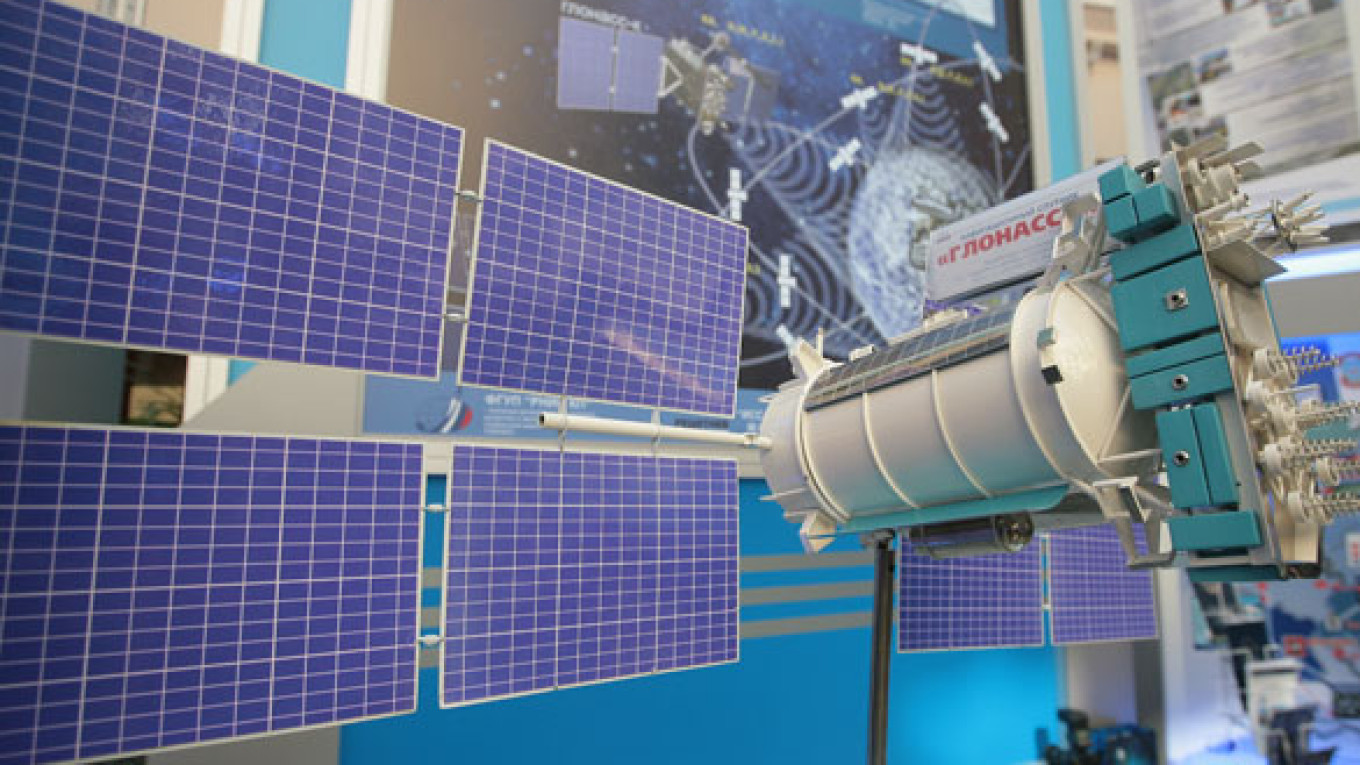Russia should legally prohibit the import of devices that operate using GPS satellite positioning technology to help develop the competing Glonass system, Sistema chief Vladimir Yevtushenkov told Prime Minister Vladimir Putin on Friday.
Under the proposal, consumer navigation devices destined for use in Russia would be required to have a Glonass receiver alongside the GPS one, possibly forcing more gadget makers to move part of their production to Russia.
Sistema has discussed the matter "with practically all of the suppliers of such equipment," including Nokia, Siemens and Motorola, Yevtushenkov said in comments posted on the government web site.
Makers of telephones and smartphones “understand perfectly well that we will close the market for equipment that doesn’t have a Glonass chip. They only want us to do this legislatively,” he said. "We aren't able to do this legislatively yet because we have some of our own problems to untangle, making chipsets and so forth."
A source with knowledge of the matter said Friday that the Industry and Trade Ministry was preparing customs regulations that could raise duties on various types of devices.
Russia has been developing Glonass, its answer to the U.S. Global Positioning System, since 1976 but still cannot produce enough chips for mass manufacture of Glonass-compatible devices. Funding stalled in the early 1990s, but in 2006, then-President Putin told the government to accelerate the program and look for commercial clients.
Russia and other emerging countries like India are keen to develop the system to lessen their dependence on GPS, which Washington can choose to limit, as it did during military operations in Iraq.
GPS, originally developed by the U.S. military, was opened for commercial use in the 1990s and is currently the only fully developed satellite navigational system.
Yevtushenkov justified the move, saying the United States had protected its market when GPS was being developed.
RTI Systemy and Sitronics — both of which are controlled by Sistema — are involved in developing the Glonass system.
There will be some pilot batches of Glonass chipsets available for commercial use this year, while “2011 should become a year of mass usage of Glonass equipment in Russia," Yevtushenkov said.
Putin tentatively backed the initiative, saying "it's good our partners understand" that Russia will defend its national interests.
"We need to build relations with them the right way — like we did, for example, with the carmakers, when they were shown the trend for how the situation would develop," Putin said. "They reacted in a timely fashion, and now … in my opinion, they're very happy with what's happening."
But the prime minister chided Yevtushenkov for outsourcing much of Sistema’s technology work to other countries, especially India, where labor is cheaper.
"I remember your plans for setting up partial production in countries where technology permits and production is cheap. Nevertheless, it’s necessary to move toward creating jobs here domestically,” Putin said.
Gleb Mishin, head of Acer's office in Russia, said the restrictions should not apply to devices whose main function is not navigation, such as cell phones. Nokia spokeswoman Viktoria Yeryomina confirmed the talks with Sistema, saying the "topic is interesting to us" but declining to elaborate.
A number of popular cell phones and computers have a built-in GPS, including several of Apple's iPhones, the company's new iPad and phones made by Nokia and Samsung.
(MT, Vedomosti, Reuters)
A Message from The Moscow Times:
Dear readers,
We are facing unprecedented challenges. Russia's Prosecutor General's Office has designated The Moscow Times as an "undesirable" organization, criminalizing our work and putting our staff at risk of prosecution. This follows our earlier unjust labeling as a "foreign agent."
These actions are direct attempts to silence independent journalism in Russia. The authorities claim our work "discredits the decisions of the Russian leadership." We see things differently: we strive to provide accurate, unbiased reporting on Russia.
We, the journalists of The Moscow Times, refuse to be silenced. But to continue our work, we need your help.
Your support, no matter how small, makes a world of difference. If you can, please support us monthly starting from just $2. It's quick to set up, and every contribution makes a significant impact.
By supporting The Moscow Times, you're defending open, independent journalism in the face of repression. Thank you for standing with us.
Remind me later.


